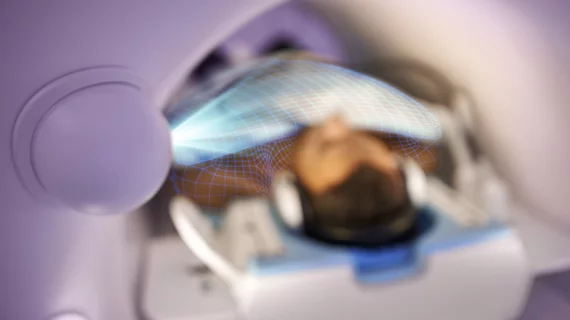Amid looming helium shortage, Philips enters research agreement to study alternative cooling methods for MRI scanners
Amid reports of a looming shortage of helium, Philips is making moves to ensure that the healthcare industry does not lose access to vital magnetic resonance imaging that requires the non-renewable element to operate safely.
Most MRI scanners require around 1,500 liters of liquid helium to keep cool, with periodic refills required throughout a machine’s lifetime. The healthcare industry accounts for close to 30% of global helium consumption, with MRI equipment needs accounting for a significant portion of that figure. Although the potential for a helium shortage is not a new concern, recent reports suggest that the supply woes may be a bit more urgent than previously thought.
To address what will inevitably be a dwindling supply of helium in the future, Philips has taken numerous steps to ensure that patients and providers will continue to have access to critical MRI technology.
Starting in 2018, Philips introduced a line of “helium-free” MRI scanners. Although those scanners do not operate completely free of the need for helium, they do consume just .5% of the amount that typical scanners require, and they also do not require refills.
Most recently, Philips announced that it has entered into a research agreement with U.S. magnet hardware provider MagCorp, which has relationships with researchers at the National Science Foundation-funded National High Magnetic Field Laboratory, located in Florida. This collaboration will explore alternative methods of cooling the superconducting magnets for MR scanners.
In line with what was a hot topic at the annual RSNA meeting, reducing MRI’s dependence on a non-renewable natural resource would increase the sustainability of radiology departments by decreasing energy consumption, which, in turn, would also reduce overhead costs of operating the equipment.
“Florida State University’s MagLab, part of the U.S. National High Magnetic Field Laboratory, is home to many of the world’s leading researchers on novel superconducting materials that don’t require liquid helium temperatures to operate. Philips has decades of MR scanner design and development experience, including most recently the launch of the BlueSeal magnet technology,” Josh Hilderbrand, Director, Head of MRI Magnet Research and Development at Philips, said in prepared remarks. “Combining these resources with MagCorp’s research facilitation services will help leverage the latest technology to accelerate access and availability of MRI to more patients and healthcare providers.”
Jeff Whalen, Director of MagCorp, also commented on the new partnership, stating that “MagCorp is proud of this partnership, which brings together Philips' game-changing BlueSeal magnet technology and the FSU MagLab’s unrivaled knowledge base about superconductors that can operate in a helium-free environment."
To learn more about the new partnership, click here.
To learn more about the latest in MRI technology, including helium-free systems, click here.

